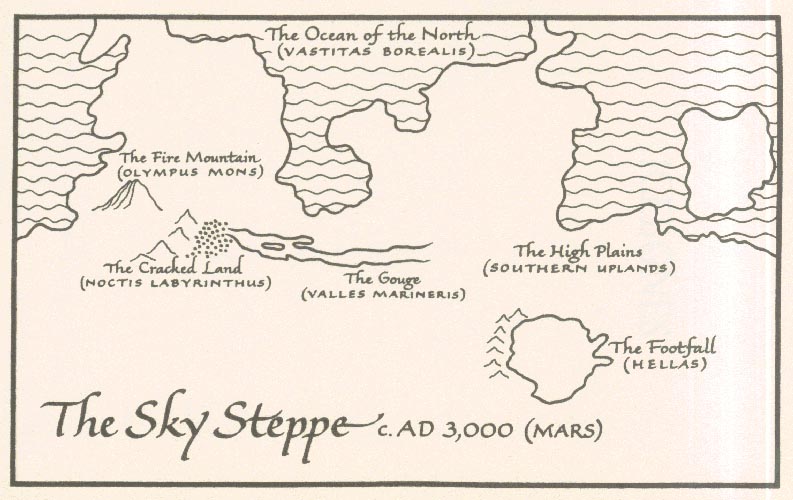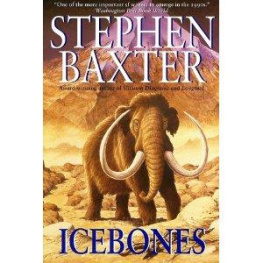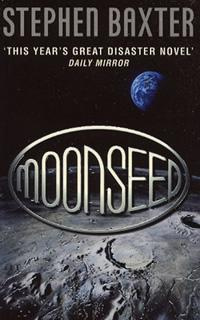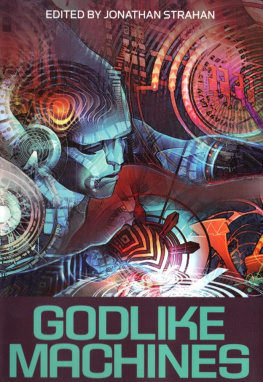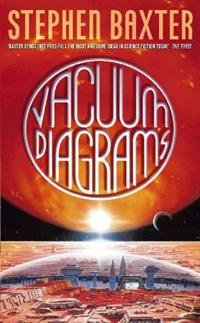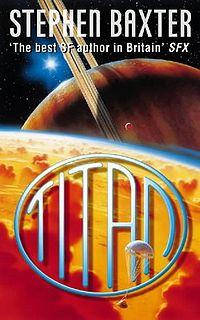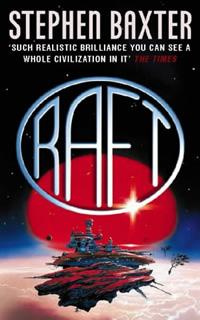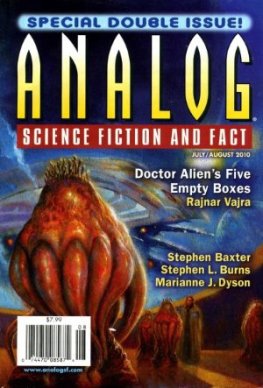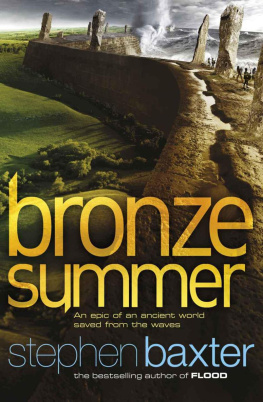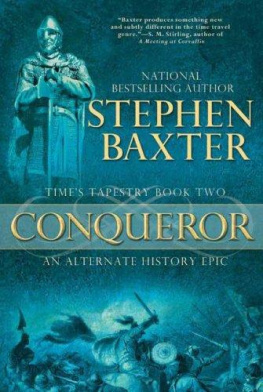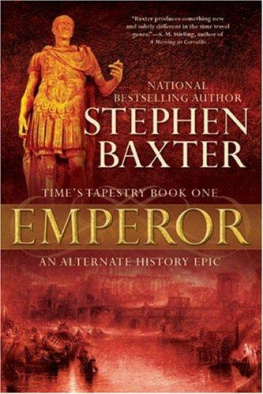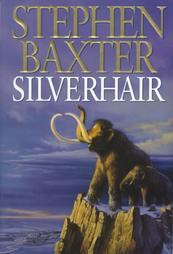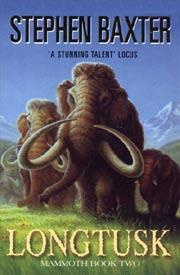Annotation
Transported to the Sky Steppe of Mars in the final, satisfying book in British author Baxter's highly original Mammoth trilogy (Longtusk; Silverhair), his engaging wooly characters face an abandoned and potentially lethal terraforming experiment left there by humans (aka "the Lost"). Matriarch mammoth Silverhair's daughter, Icebones, awakens from an unnatural slumber to find herself in a land and time far from her native Pleistocene earth. The mammoths here have no knowledge of their ancient culture, such as the teachings of their mighty progenitor, Kilukpuk. Mammoth tradition says the Sky Steppe is "the Island in the sky where... mammoths would one day find a world of their own, free from the predations and cruelty of the Lost, a world of calm and plenty" yet whatever promise Mars once held is fading now as the changes made by human engineers are reversed under the assault of the red planet's uncompromising weather and geology. Icebones's companions, used to depending on the Lost for everything, can't possibly survive alone. Their only hope is to cross half the world to reach the Footfall of Kilukpuk, a rich valley full of all the sweet grass and water the mammoths need. The journey is long and treacherous, but as the beasts' great Cycle says, "The mammoth dies, but mammoths live on." Baxter fills the tale with taut adventure and splendid settings, making it easy to suspend disbelief.
Icebones
by Stephen Baxter
To David and Sarah Oliver and Colin Pillinger and the Beagle 2 team
Prologue
There is a flat, sharp, close horizon, a plain of dust and rocks. The rocks are carved by the wind. Everything is stained rust brown, like dried blood, the shadows long and sharp.
This is not Earth.
Though the sun is rising, the sky above is still speckled with stars. And in the east there is a morning star: steady, brilliant, its delicate blue-white distinct against the violet wash of the dawn. Sharp-eyed creatures might see that this is a double star; a faint silver-gray companion circles close to its blue master.
The sun continues to strengthen. Now it is an elliptical patch of yellow light, suspended in a brown sky. But the sun looks small, feeble; this seems a cold, remote place. As the dawn progresses the dust suspended in the air scatters the light and suffuses everything with a pale, salmon hue.
At last the gathering light masks the moons. Two of them.
On this world, a single large ocean spans much of the northern hemisphere. There are smaller lakes and seas: many of them circular, confined within craters, linked by rivers and canals. Much of the land is covered by dark green forest and by broad, sweeping grasslands and steppe.
But ice is gathering at the poles. The oceans and lakes are crawling back into ancient underground aquifers.
The grip of ice persisted for billions of years. Now it comes again.
Soon the air itself will start to snow out.
This is the Sky Steppe.
This is Mars.
The time is three thousand years after the birth of Christ.
The rocky land rings to the calls of the mammoths. But there is no human to hear them.
Part 1: Mountain
The Story of the Language of Kilukpuk
This is a story Kilukpuk told Silverhair, at the end of her life. All this happened a long time ago, long before mammoths came to this place, which we call the Sky Steppe. It is a story of Kilukpuk herself, the Matriarch of Matriarchs, who was born in a burrow in the time of the Reptiles. But at the time of this story the Reptiles were long gone, and the world was young and warm and empty.
Kilukpuk had been alive for a very long time. She had become so huge that her body had sunk into the ground, turning it into a Swamp within which she dwelled.
But she had a womb as fertile as the sea. And every year she bore Calves.
Kilukpuk was concerned that her Calves were foolish.
Now, in those days, no Calves could talk. Oh, they made noises: chirps and barks and rumbles and snores and trumpets, just as Calves will make today. But what the Calves chattered to each other didn't mean anything. They made the noises in play, or without thinking, or from pain or joy.
Kilukpuk decided to change this.
One year Kilukpuk bore three Calves.
As they suckled at her mighty dugs, she took each of them aside. She said, "If you want to suckle, you must make this sound." And she made the suckling cry. And then, when the Calves were no longer hungry, she pushed them away.
The next day all the Calves were hungry again, and Kilukpuk waited in her Swamp.
The first Calf was silent, for she had forgotten the cry Kilukpuk taught her. And so she received no milk.
And she died.
The second Calf made the suckling cry, but made many other noises besides, for she thought that the cry was as meaningless as any other chatter. And so she received no milk.
And she died.
The third Calf, observing the fate of her sisters, made the suckling cry correctly. And Kilukpuk gathered her to her teat, and suckled her, and that Calf lived to grow strong.
When she grew up, that Calf had three Calves of her own. And all of them were born knowing the suckling cry.
Now Kilukpuk gathered the three Calves of her Calf. She said, "If you ever lose your mother, you must make this sound." And she made the lost cry. And then she pushed the Calves away.
A few days later, the playful Calves lost their mother -- as Calves will -- and Kilukpuk waited in her Swamp.
The first Calf was silent, for she had forgotten the cry Kilukpuk taught her. And so she stayed lost, and the wolves got her.
And she died.
The second Calf made the lost cry, but made many other noises besides, for she thought that the cry was as meaningless as any other chatter. And so she stayed lost, and the wolves got her.
And she died.
The third Calf, observing the fate of her sisters, made the lost cry correctly. And Kilukpuk gathered her up in her trunk and delivered her to her mother, who suckled her, and that Calf lived to grow strong.
And when she grew up, that Calf had three Calves of her own. And all of them were born knowing the suckling cry, and the lost cry.
And the next generation of Calves was born knowing the suckling cry, and the lost cry, and the "Let's go" rumble.
And the next generation after that was born knowing the suckling cry, and the lost cry, and the "Let's go" rumble, and the contact rumble.
And so it went, as Kilukpuk instructed each new generation. Calves who learned the new calls were bound tightly together, and Kilukpuk's Family grew stronger.
Calves who did not learn the new calls died. And still Kilukpuk's Family grew stronger.
That is how the language of mammoths and their Cousins came about. And that is why every new Calf is born with the language of Kilukpuk in her head.
Yes, it was cruel, and Kilukpuk mourned every one of those Calves who died. But it is the truth.
The Cycle is the wisdom of uncounted generations of mammoths. Nothing in there is false. For if it had been false, it would have been removed.
Just as the foolish Calves who would not learn were removed, by death.
1
The Awakening
Icebones was cold.
She was trapped in chill darkness. She couldn't feel her legs, her tail, even her trunk. She could hear nothing, see nothing.
